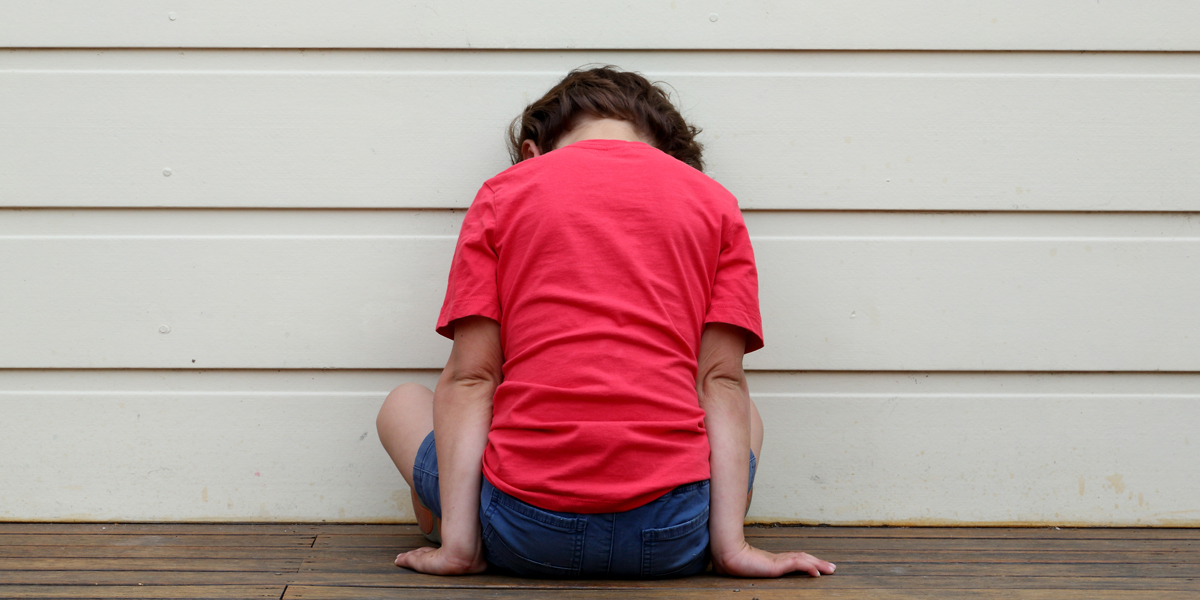Healthy self-esteem is based on the belief that you are good enough as we are. If you have self-esteem, you can assess yourself realistically — seeing your difficulties, shortcomings, mistakes, etc. — while still appreciating yourself and thinking well of yourself. A person with healthy self-esteem doesn’t feel that they are better or worse than others. They are satisfied with themselves, but also humble because they know how much they still have to learn.
Childhood, our foundation
Self-esteem is shaped by a child’s relationship with his parents from birth. Most parents try to take care of their child and his needs. Unfortunately, sometimes life circumstances such as illness, external difficulties, lack of empathic care for the child, parents’ own shortcomings or the influence of those around, cause a child’s self-esteem to be shaky. Although the child receives the basic care, his sense of the value depends on how successful he is at something. It is stronger when a child succeeds in doing something well, and all but disappears when he fails.

This way of experiencing yourself and responding to circumstances, if not noticed early enough and modified (it is possible), continues in adulthood and makes us feel valuable and satisfied only when things go our way. On the other hand, when something in life goes wrong — we lose our job (or position), someone close to us rejects us or causes us a lot of pain or even betrays us, or friends and acquaintances are busy with their own issues, etc., we stop to see and feel our own worth. And because nothing in life is “forever,” we are regularly exposed to changes and frustrations, bigger or smaller, that affect our self-esteem. If we are very dependent on external factors to build up our value, any — even minor — failure affects it very much. Of course, our difficulties or failures affect us, but if we have a sincere belief in our own value, then they will not destroy our self-esteem.
How to build self-esteem?
Healthy self-gives us the courage to try difficult things and make every effort to succeed. And if we fail, we change strategies, we look for new opportunities, and trusting in our own strength, we try again.
Self-esteem can be rebuilt or strengthened in adulthood. And it’s worth doing, especially when we think It’s too late for change …There’s no point doing anything … I will not be able to do it anyway … I can’t be bothered to deal with myself. Our weakened sense of self-esteem can be slowly rebuilt when we have a healthy environment like a new family, work, or community. The most advanced way to rebuild your self-esteem is psychotherapy (most often long-term), but there are also other ways to help raise our sense of worth.
The most critical qualities needed is perseverance and regularity, which are not popular in today’s world; impulsiveness and transiency are usually promoted instead. However, in the case of rebuilding or strengthening our self-esteem, regularity and repetition are needed. Our brain needs to form new patterns, repeating them, changing habits, and strengthening new ones.
Here are a few ways to do that …
1. Set yourself a “reminder” on your phone and practice each of these points every day at the same time. You can note your achievements every day, modifying some of the points, adapting to current needs. Check how you’re doing, appreciate the effects and efforts you put into working on yourself. Ask your family, friends, acquaintances if they see any change.

2. Treat yourself like a beloved child, for whom you care in every aspect, you love and appreciate, but at the same time you put limits on, and for whom you help prepare for the future.
3. Take care of yourself, be patient with yourself, get to know yourself and give yourself time. Don’t rush. Learn to recognize your needs and emotions, learn how to satisfy them or deal with them without hurting others. Take this scenario, for example: You always go to the movies with family or friends to see the newest movie premieres. Finally, you decide you would rather do something else instead. You can then find people who share your true interests and convince friends to join you in a different activity.
4. When you feel bad, simply stop negative thoughts, change them into positive ones. Push the bad ones away, don’t let them flood you. If you think, “I’m hopeless, everything went wrong again, and my colleague is doing great. I can’t do anything right, I’m good for nothing” etc., push them away, say “It’s going great because I did … I am happy when … I like myself for …” etc.

5. Appreciate your strengths, your advantages; enjoy them, don’t devalue them. Instead of fake modesty type of reply, “Oh, that was nothing. It just happened like that,” to a nice comment regarding a well-planned trip, say, “Thank you. I worked hard at it; it came out really well.” It seems like a small and trivial thing, but continually appreciating yourself will cause you to feel better, and others and yourself to think and speak better of you.
6. Appreciate good moments, enjoy successes, celebrate reaching various goals, even the small ones. Enjoy gifts you receive, offer gifts, be thankful for little things. Being thankful and showing your gratitude is as important as asking.
7. Take care of your body and mind (proper nutrition, physical exercise, sufficient sleep, rest after work, appearance and all that goes with it). Don’t give up challenges, even if they require greater effort than watching an episode of your favorite TV series.

8. Take care of your spiritual development, in the best way for you. According to a 1989 research, a person’s relationship with God has a more significant effect on life satisfaction than age earnings, marital status, race, or going to church. In 1999, research on the connection between life satisfaction and religiousness and spirituality showed that the level of closeness with God correlated most with the level of life satisfaction during the entire life. Prayer and belonging to a church, group or a community and participation in church, group or community were next on the list.
9. Dream. Then change your dreams into realistic plans and implement them while in good contact with reality. Start small; instead of saying you want a promotion, but that you’d have to go to grad school, take a test, etc., start looking for schools and programs of study, figure out possible financing, study every day, etc.
10. Finally, the most important point: Know your system of values, write them down, define them, and stick to them regardless of difficulties. Knowing your worth and your values, you will not impulsively let someone talk you into some unwise activities, and holding on to your values will bring you a great sense of satisfaction.

Read more:
The best self-esteem hack for stay-at-home moms

